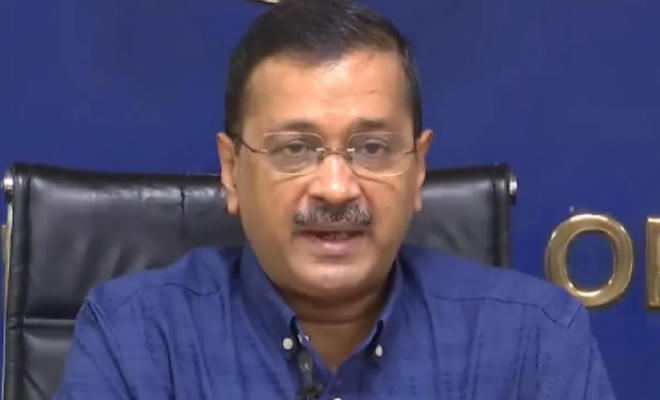Arvind Kejriwal calls cabinet meeting over Delhi floods

Arvind Kejriwal, the Chief Minister of Delhi and the national convener of the Aam Aadmi Party (AAP), called for a cabinet ministers’ meeting on Saturday to discuss the flood situation in the national capital.
Arvind Kejriwal said that the situation would normalize soon if there is no more heavy rainfall. However, he expressed concern over the flood. Delhi Traffic Police also expressed concern about the flood water surrounding the low lying areas near the Yamuna River.
Flood-like situations continued in several low-lying areas in the national capital. The Indian Meteorological Department (IMD), an agency of the Ministry of Earth Sciences of the Government of India, also issued a warning for Delhi, saying that a light to moderate rainfall accompanied by thunderstorms is expected for the next five days.
Ashwani Kumar, the Revenue Secretary and Divisional Commissioner of Delhi Government, said, “Yamuna water level is receding and is at 207.43 meters by 11 am, it will further reduce to 206.72 meters by 11 pm. The receding trend will persist since there is no sign of precipitation in the upper regions.”
Meanwhile, the AAP alleged that the BJP government in Haryana directed all water from the Hathnikund barrage, a concrete barrage located on the Yamuna River in Yamuna Nagar district, to Delhi, causing a water crisis in Uttar Pradesh.
Haryana’s Chief Minister Manohar Lal Khattar’s advisor denied such claims. He called the claims baseless. He further stated that the controversy surrounding the barrage was unnecessary.
In recent days, Delhi witnessed an unprecedented rise in Yamuna’s water level. The water level increased from 203.14 meters on 9 July to 205.4 meters on 10 July. The Central Water Commission, a premier Technical Organisation in the field of water resources, called it an ‘extreme situation’.
Also Read:- Mumbai: Caller Threatens Terrorist Attack Akin to 26/11 if…
Earlier this month, Delhi witnessed the highest rainfall in a single day since 1982. Various leaders termed it as the primary reason for the rising water level in Yamuna.



